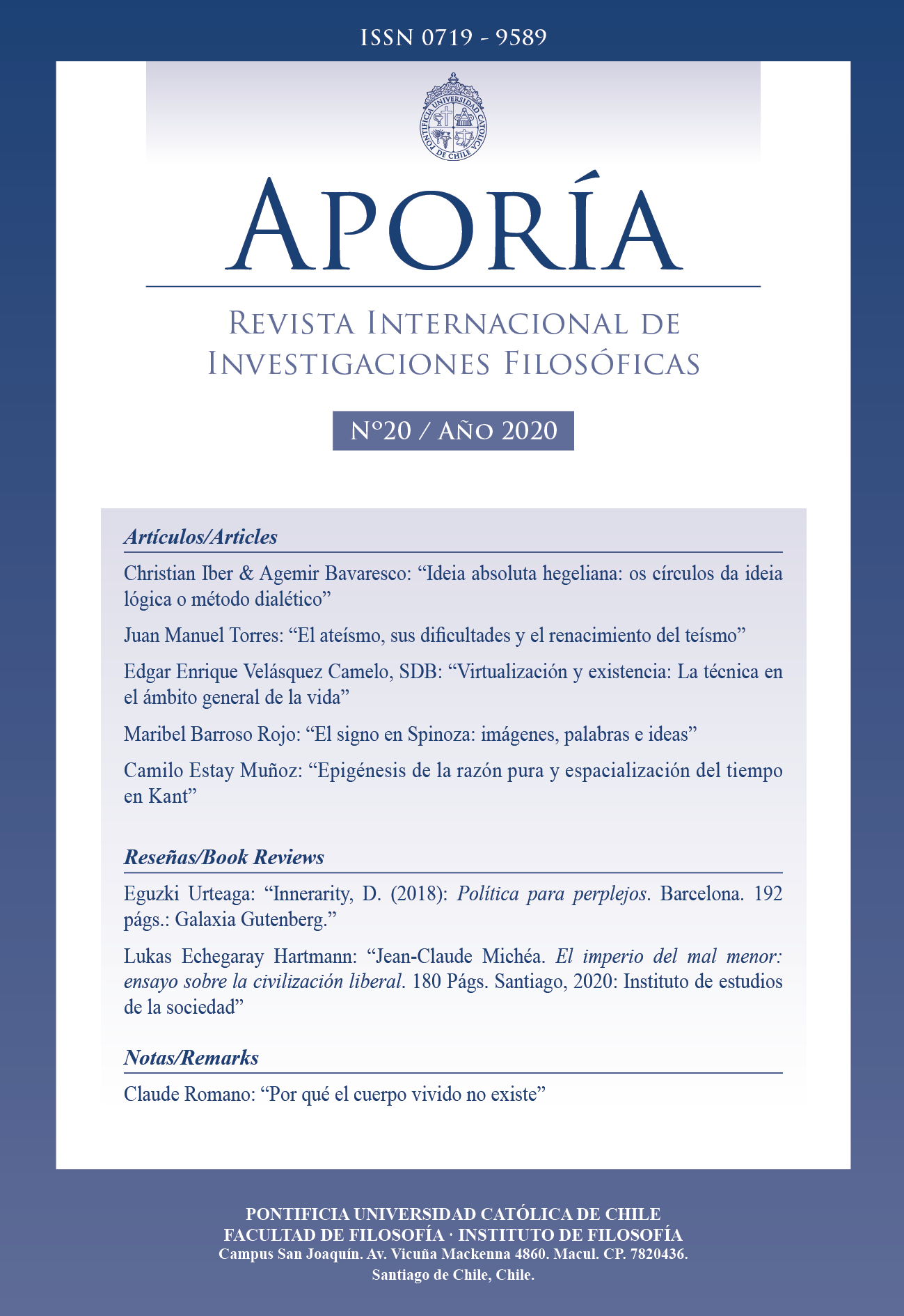O diálogo de Hegel com as ciências modernas na lógica da essência a partir do aparecimento
Contenido principal del artículo
Resumen
Hegel's Science of Logic concludes with the “absolute idea”. The end meets the beginning, at the same time, as a retrospective of logical foundation and perspective of opening to spatiotemporal and historical exteriority. The problem is how this process is made explicit through the dialectical method, that is, articulated by the contradiction between idealism and realism, in a categorical network of logical space and time that imply a reason that is justified as true insofar as the idea becomes effective in history. The research addresses critical points in the structure of the dialectical method and its relationship with the absolute idea; contextualizes the historical debate of Hegelian idealism and realism; explains the essential role of the moment of contradiction that moves the logical-historical process; thematizes the specific sense of time and logical space, and finally, describes the dialectical tension between reason and effectiveness and its modern and contemporary historical implications. The absolute idea is the leitmotiv that contains in itself the form and the content of the logical whole as a whole in motion always open to constitute new meanings and produce new figurations of meaning for the circles of the logical idea.

